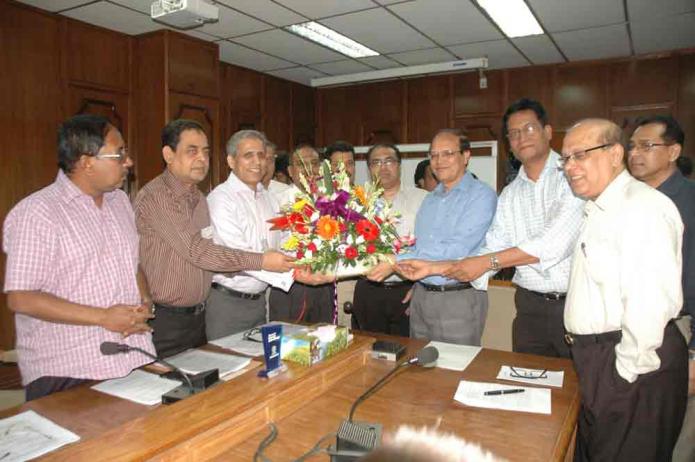


July 11, 2011
Bangladesh Bank eases interest pains for troubled garment factories
The central bank has moved to pursue banks to cut the interest rate for 270 sick garment companies to 8 percent from as high as 15 percent, an official said yesterday.
Of the 8 percent interest rate, 5 percent will be paid by owners and the rest will be subsidised by the government, said Jahangir Alam, an executive director of Bangladesh Bank.
Alam spoke to reporters after a meeting between BB Governor Atiur Rahman and leaders of Bangladesh Garment Manufacturers and Exporters Association at the central bank office in Dhaka.
“Owners of troubled garment companies will be able to get loans by paying a flat 8 percent interest rate,” Alam said. “It will help the companies recover from deep losses.”
Of the 270 companies, 88 owe money to private commercial banks and 182 to the public commercial banks.
Alam did not however mention the accumulated amount of outstanding loans by garment owners or subsidy to be paid by the government or how much the government has written off.
Urged by the garment exporters at the meeting, the governor agreed to increase the Export Development Fund (EDF) from the existing $400 million. The new EDF is yet to be disclosed.
The central bank will also reduce the export proceed time from an existing 120 days, so that the money comes into the country fast. Alam said a $2 billion export bill is yet to come to the country because of a long proceed time.
BB said it will also clarify the meanings of some words in the circulation of the second stimulus package, which has already been awarded to the ready-made garment exporters to offset fallout from the global recession.
Alam said the garment exporters are yet to get the funds from the second stimulus package for some ambiguous words in the circulation of the stimulus package. But the central bank agreed to clarify the meaning of those words, so they can easily get the money.
BGMEA President Shafiul Islam Mohiuddin said the garment owners cannot yet take loans from the central bank because of stern conditions, such as construction of dormitories for garment workers to resolve accommodation problems.
The government should take steps that the new entrepreneurs feel encouraged to invest in the garment sector, Mohiuddin said. He also demanded low-cost funds so that the factory owners construct effluent treatment plants.

Copyright © 2020, The Bangladesh Garment Manufacturers and Exporters Association.
Version-2.0, Design & Developed by Systech Digital Limited.
Version-2.0, Design & Developed by Systech Digital Limited.
